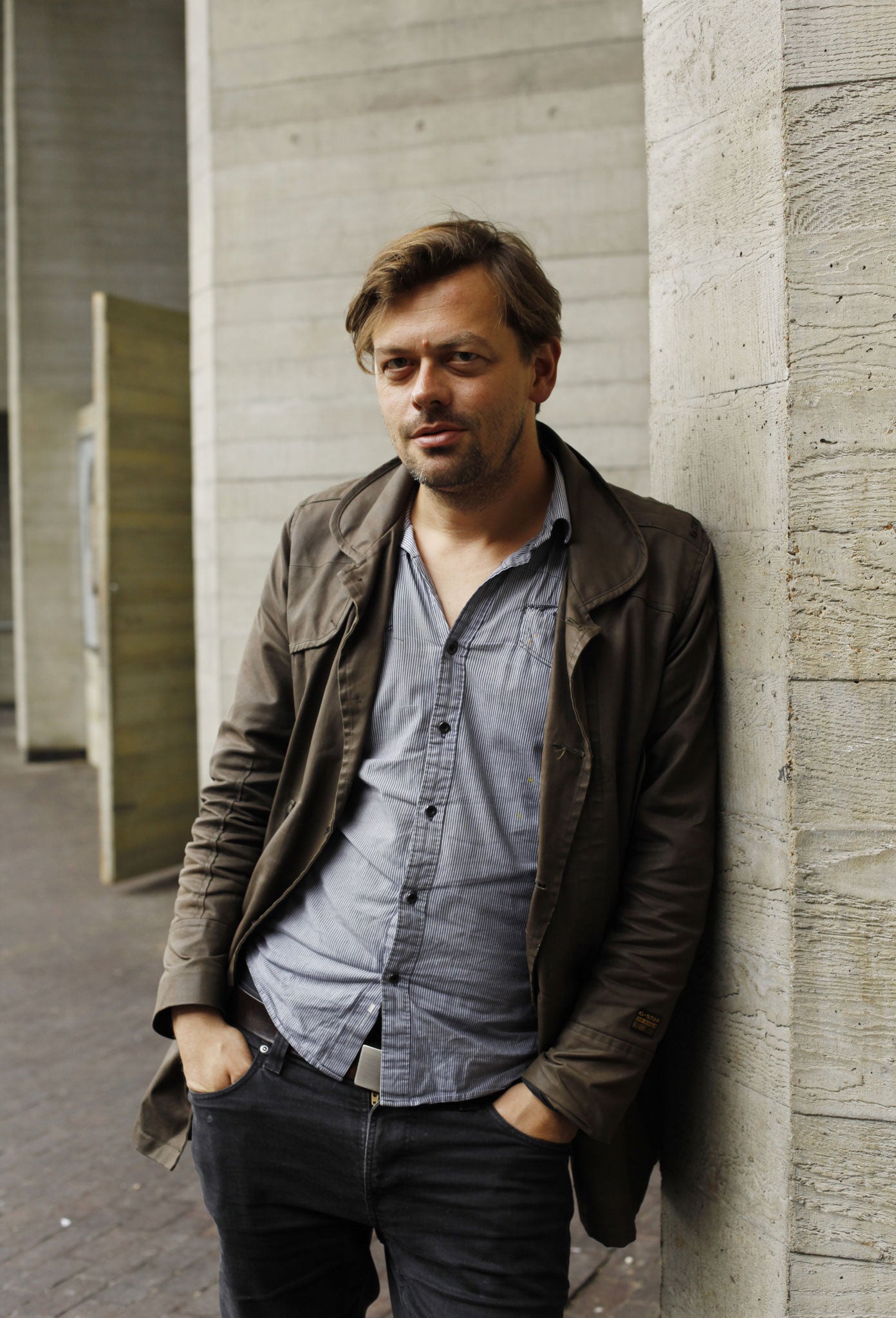Simon Stephens interview: The playwright on red-blooded rehearsals, disappointing his children - and why plays are like turtles
Stephens's productions include a highly-acclaimed adaptation of Mark Haddon's 'The Curious Incident of the Dog in the Night-Time'

Your support helps us to tell the story
From reproductive rights to climate change to Big Tech, The Independent is on the ground when the story is developing. Whether it's investigating the financials of Elon Musk's pro-Trump PAC or producing our latest documentary, 'The A Word', which shines a light on the American women fighting for reproductive rights, we know how important it is to parse out the facts from the messaging.
At such a critical moment in US history, we need reporters on the ground. Your donation allows us to keep sending journalists to speak to both sides of the story.
The Independent is trusted by Americans across the entire political spectrum. And unlike many other quality news outlets, we choose not to lock Americans out of our reporting and analysis with paywalls. We believe quality journalism should be available to everyone, paid for by those who can afford it.
Your support makes all the difference.All my plays have failed in a way They are all have bits where I can hear my voice too clearly, or the narrative doesn't work, or the overall image is incoherent. But failure means I've got to try again. If I ever write a play where I think I've nailed it, I'd quit.
A huge amount of creativity has been driven by the libidinous engine of sexual desire It's great in a rehearsal room when there are two actors who fancy each other, as it gives a crackle of tension that's tremendously creative. But there was a time in my life, at university at the end of the 1980s, when sexual politics were so volatile that it was too nerve-racking to admit to that: to acknowledge heterosexual attraction towards a girl back then felt like an act of violent patriarchy.
Plays are like turtles That's actually stolen from Graham Whybrow, the most underrated figure in post-war drama, and a mentor: he said they can be vibrant, healthy beasts that have somehow managed to get themselves on their back and all they need is to be flipped the other way around and they'll scuttle off quite happily. There are many examples in my career: flipping the protagonists in Harper Regan and Port from men to women did it for me.
A whole generation of actors and writers is moving out of London It's a city outpricing itself. Instead they're going to Cardiff or Glasgow – or Manchester, where there are two exciting international theatres, an annual international arts festival and a burgeoning fringe. As a Stockport teen, I was always going to the Hangout at Isadora's or watching bands at the Haçienda: back then it felt as though there was a latent energy in the Manchester music scene. Now it feel like that same energy is in the theatre scene.
I used to think that cultures unite when times get difficult But one of my most vivid memories of my life as a secondary teacher challenged that. I was teaching To Kill a Mockingbird at a school in Dagenham in a white, working-class neighbourhood, and talking about the instinct for groups to bond. One lad – a quiet but very intelligent boy who hardly ever spoke – stuck his hand up and said, "I think you're wrong about that, sir. I think that in times of poverty, people turn on one another." I wonder now whether he was right.
I'll probably be a crushing disappointment in my life as a Labour Party member I joined after the election, after realising that it's all well and good kicking around Twitter, whingeing about Ed Miliband and his lack of vision, but it's redundant unless you actually do something. I'd love to drop leaflets and go to meetings, though I don't know if I'm actually going to do anything, as I have a family and my life is exhausting.
I'm sure I'll let my children down An Oscar Wilde character said in A Woman of No Importance that children begin by loving their parents; after a time they judge them; rarely, if ever, do they forgive them. I do think it's true that most of us at some point are disappointed by our parents, but I think that third point is wrong: occasionally children have the potential to forgive their parents and, as a parent, that's the best you can hope for .
I waffle on My wife Polly would say it's my worst habit, blathering on. Of course I disagree: my worst habit is failing to realise that there is such a thing as journey time. I really shouldn't leave somewhere at the moment I need to be at the next place.
Simon Stephens, 44, is a playwright whose productions include a highly acclaimed adaptation of Mark Haddon's 'The Curious Incident of the Dog in the Night-Time'. His latest play, 'The Funfair', is at Home Theatre, Manchester (homemcr.org), until 13 June
Join our commenting forum
Join thought-provoking conversations, follow other Independent readers and see their replies
Comments